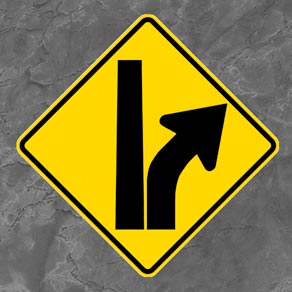 I’ve been online since before the days of CompuServe, one of the early internet discussion environments. Without claiming internet expertise, I’ve seen my share of message boards and behaviors, including involvement in occasional disagreements and flames. These days I find myself among a cohort of medical patient activists who have suffered various degrees of harm at the hands of the medical system. Some of us are the family of loved ones from infants to elderly parents who have died due to medical error in hospitals. Some of us are patients who have directly been harmed. Some of our harm is existential; some situational; some accidental; some alleged as purposeful (or purposely covered up); some ongoing for months, years, or decades.
I’ve been online since before the days of CompuServe, one of the early internet discussion environments. Without claiming internet expertise, I’ve seen my share of message boards and behaviors, including involvement in occasional disagreements and flames. These days I find myself among a cohort of medical patient activists who have suffered various degrees of harm at the hands of the medical system. Some of us are the family of loved ones from infants to elderly parents who have died due to medical error in hospitals. Some of us are patients who have directly been harmed. Some of our harm is existential; some situational; some accidental; some alleged as purposeful (or purposely covered up); some ongoing for months, years, or decades.
Not infrequently one or another of us question what the hell we’re doing and what if any effect we’re having, for medicine in the United States is nothing if not entrenched and complex. Issues abound: quality, equity, accountability, sustainability; lots of y’s. How we speak of our harm runs the gamut from mousy to megalomanic.
Mousiness is what got us into trouble in the first place, and it’s rare that I encounter it. I do from time to time; fear of pissing off providers remains a real negative motivator (even from quarters one might not expect: not too many years ago the CEO of a prominent hospice in my state declined to endorse my book—a book that a range of ethicists, regional doctors, and policymakers had already endorsed—for fear of annoying local county doctors.
Most of us patient advocates relate our stories, link to relevant trends, research, and continued outrages, and report on our own efforts to mitigate future harm and empower our fellow citizens. I don’t think that any of we moderate cohort are pushovers, but we are almost always well-mannered online (I know I’m occasionally perceived as otherwise). I believe, however, that each of us, having arrived at this juncture, would quickly become not well mannered should we or another family member be threatened with medical harm again.
A very few voice their outrage. Some of these folks offer out of the box, provocative suggestions and information, which I value. If I’ve learned anything at all about how to advocate it’s the importance of proactively thinking, in advance, way outside the lines. I’ve assessed how vital it is to self-define according to my own values and desired outcomes. I like obtaining a range of information and viewpoints, and the contrarian in me welcomes them. I’m willing to overlook or see through occasional rough communication—even when over the top—to benefit from the hefty nuggets within.
I’ll generalize: the thing about our most outraged colleagues is that they sometimes can’t tell their friends from their enemies. They tend to equate any challenge, even from fellow activists, as a continuation of significant systemic harm. They tend—to phrase this in both senses of the term—to relieve themselves inside the tent, from inside the tent.
Whereas my zeal flows and ebbs, their zeal appears to run full tilt, all the time. I believe that we benefit from all zeal, all the time, annoying though it may be to encounter on a daily basis.
One group’s founders posted what in my experience of group rules is the best metaphor for group behavior: a dinner table shared by guests. The principle ideas being not to hog the conversation, and to temper the expression of one’s viewpoints just a bit to keep, I’ll add metaphorically, the other guests from cutting themselves on the group’s shared utensils. Now, as a user of quality cutlery I like sharp blades and am willing to accept the occasional nick because they are effective tools. I hold the same viewpoint toward internet group participation (assuming the informational slices offered remain insightful).
Recently, several outspoken members of a valuable group got the boot on both counts: too-sharp verbal cutlery and vociferous, voluminous posting. Even as I understand the impetus, I question the bedrock necessity and regret their exclusion.
Because harm without expressed outrage is merely a whimper. The trick, though, is in its tempering.

Tempering.
This is an important characteristic to have when expressing the consequences of harm, though hard to maintain when much is at stake. Because, when someone comes at us with rage, anger, loudness, etc, we often stop listening to what they are saying and instead think about protecting ourselves, becoming defensive. The content of the message gets lost and the shields go up.
Hi Steve! I experience a difference in feeling between live encounters and print/online. I can tolerate much more verbal force in the latter and I suspect this to be true for all. Of course, absent pure raving, online the force arrives as a run-on word torrent. I look for tempering in that context in cohesive presentation and quality thinking.